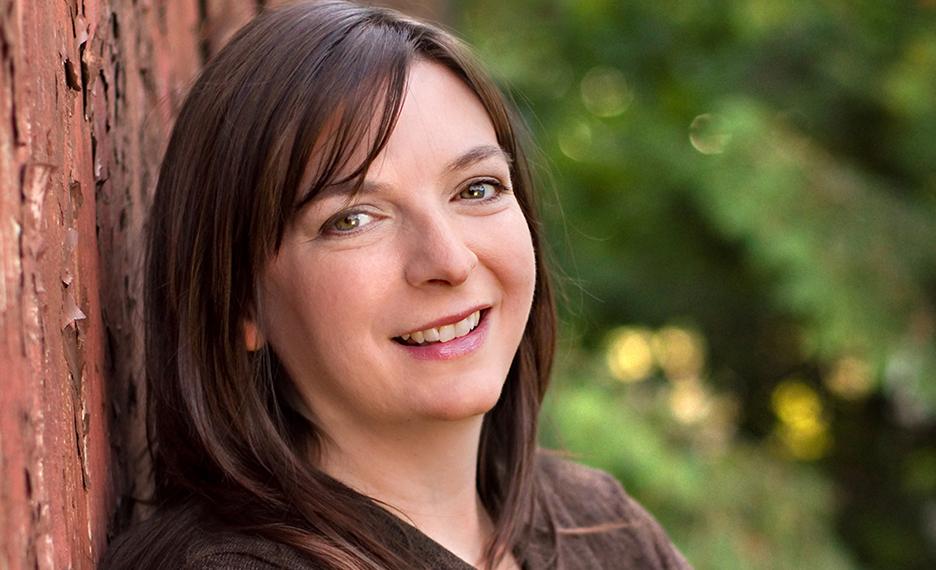Q&A with a project manager and agriculture advocate

Jennifer Mitchell (associate diploma in agriculture, 1999) is a passionate advocate of agriculture. She is a project manager with Koeslag Consulting Inc. and a board member of Farm and Food Care Ontario (FFCO). We talked with Jennifer to learn more about her roles and the importance of agricultural outreach.
Tell us about your role with Koeslag Consulting Inc.
I work as a project manager for Koeslag Consulting Inc. We manage the Ontario Bean Growers, Mushrooms Canada, the Ontario Agricultural Commodity Council, the Ontario Canola Growers Association and the Ontario Institute of Agrologists. My portfolio is mostly Ontario Bean Growers. My main responsibilities are managing research projects, promotional activities and grower communications and supporting the executive director, Ryan Koeslag (also an OAC grad), with all other facets of managing a commodity organization.
Why did you decide to study at U of G?
I think that probably goes back to my childhood when my parents would take me to College Royal. We also had neighbours who were dairy farmers, and we often went to watch their children show for 4-H. As soon as I was old enough, I joined 4-H and joined the dairy club. I come from a long line of farmers in Quebec, and although my parents didn’t buy a farm it has always been in my blood. I can't remember when the decision was made in my mind, but I can't remember a time when I thought that I would go somewhere else.
How did your time at U of G support your career?
It gave me a comprehensive grasp of the agriculture industry. I will admit, I strayed a bit, because my focus at university was on livestock. I took most of the livestock production courses that were available. And now I’m working with Ontario Bean Growers. Luckily, I did take a few crops-related courses, so I was able to draw upon that knowledge, which helped me transition into the sector.
What is your favorite thing about working in the agricultural industry?
I love that we're actually a very small community. Everybody knows everybody. I'm working and connecting with people in agriculture communications now that I was fair ambassador with in 1994. I think agriculture is very unique in this way.
What is a common misconception people hold about agriculture?
From the crop side, I would say people think farmers spray chemicals haphazardly. All of us who work in agriculture know that isn’t true. It involves an exact science, and farmers need to make decisions that are economically and environmentally viable. The land and crops are a farmer’s livelihood. They care deeply about the environment and want to keep it healthy for generations to come.
Tell us more about your work with Farm and Food Care Ontario.
FFCO is working to gain public trust for food production in Ontario. As a member of the board, I help provide strategic direction. My most recent involvement is with the governance committee, which is currently reviewing the effectiveness of FFCO’s two advisory councils (Farm Animal Care Council and the Farm Environment Advisory Council). These councils include passionate farmers and members who provide input into Farm and Food Care’s direction. We’re looking at how to make the councils more efficient and more valuable for members.
FFCO’s vision is to “Earn public trust in Ontario food and farming.” Why is that important?
Many people don’t know how food is produced; they are so far removed from agriculture. And there is so much misinformation about agriculture. It is a struggle to share information with people in a way that resonates with them. We must figure out the right formula. We must ask ourselves: “What can we do to inspire and teach this to an audience?” Having a conversation is an important first step, but what does that conversation look like? At FFCO, we create opportunities to have those conversations. Our Breakfast from the Farm events are a great example of people having the opportunity to learn about agriculture and talk directly with the farmers.
What advice would you give to someone looking to learn more about agriculture and food?
A great starting point is to have a garden and grow your own food! We started a garden club with FFCO to support all the new COVID-19 gardeners. I was one of the garden ambassadors, and many of the people in the club had never planted a seed before. This club was a great opportunity to draw the parallels between gardening and farming. If somebody’s cucumbers were being devastated by cucumber beetles, that was a great case study for what a farmer goes through. We would say: “Imagine if you had acres and acres of this to deal with. You can see why a farmer might want to use a pesticide to save their crop.” Because of the personal connection, people can better understand why farmers do what they do.
Another great tool is social media. I would recommend following organizations like Farm and Food Care, or the farmers themselves. There are a lot of farmers out there that are willing to share and are great ambassadors. Farmer Tim, Tim May OAC ‘94, is a great farmer to follow. He is so humble and one of the best ambassadors you can have for agriculture because he shares all the highs and lows. I would also recommend following the social media channels of commodity groups. Most will have dedicated consumer facing channels that share information and recipes. You can find the Ontario Bean Growers and Mushrooms Canada at the following handles: @ontariobeans and @mushroomscanada.
This article was originally published in the LIBRANNI 2022 / Vol. 4